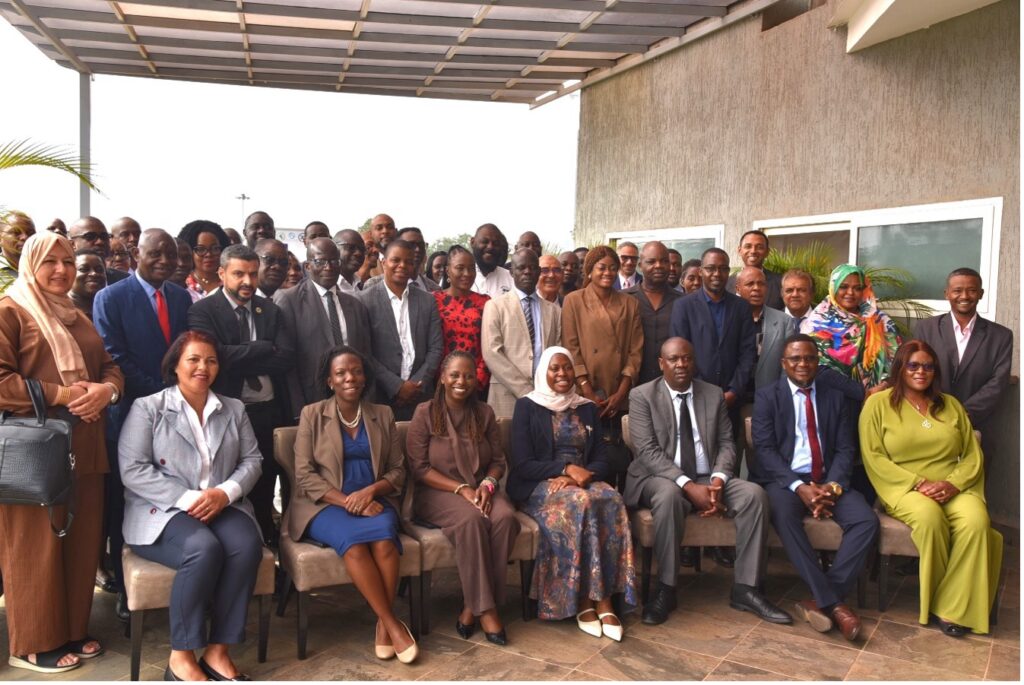
About 60 experts in Information and Communication Technologies (ICTs) and E-Waste Management from COMESA, EAC, IGAD, IOC and SADC met in Uganda from 12 – 14 August 2025 to validate the Draft Policy and Regulatory Documents for Phase III of the ICT Authorization and E-Waste Management Programme.
Once approved, adopted and implemented by Member States, the policies will shape the future of digital and environmental sustainability across Africa.
Speaking when she officially opened the meeting on Tuesday 12 August 2025, Dr. Aminah Zawedde, Permanent Secretary in the Ministry of ICT and National Guidance of Uganda, called on the delegates to craft actionable policies that Africa can implement and benefit from in order to transform the ICT landscape. She pointed out that ICTs are a tool for economic development and many studies have proven that there is a core relation which is attributed to several factors, including increased productivity, efficiency gains and the creation of new economic opportunities.
“I therefore urge you to draft policies and frameworks that will not gather dust in offices but be implemented for our continent to see real transformation. We are good at coming up with these documents but implementation is usually a challenge.”
She added that with the rapid growth in the use of ICT services and digital technologies, there has been a corresponding increase in the volumes of E-waste—both on the consumer side and from ICT service providers. Therefore, making it essential to have effective E-waste management measures in place to safeguard public health and the environment from the harmful effects of improperly disposed electronic waste.
The meeting acknowledged that as the region embraces the benefits of the dynamic digital innovations, they also continue to experience an exponentially growing volumes of electronic waste especially in Africa.
The PS noted that through initiatives such as the Enhancement of Governance and Enabling Environment in the ICT Sector (EGEE ICT) Programme coupled with actionable road maps, the programme can act as a key driver of transformation for the five region to harness the full potential of ICTs.
Speaking on behalf of COMESA Secretariat, Telecommunications Officer Mr. Leonard Chitundu, emphasized the importance of a modern ICT Authorization framework to boost innovation, protect consumers and foster a thriving digital economy.
He stressed that a modern, up-to-date ICT Authorization policy is crucial for fostering market competition, protecting consumers, promoting universal access, and efficiently managing resources like spectrum and numbering adding that a strong ICT framework also encourages innovation, introduces new services and supports the growth of Africa’s digital economy.
Mr Chitundu reiterated COMESA’s commitment to deepen regional integration and the growth of the ICT sector through the EGEE ICT Programme which is supported by the European Union.
During the three-days meeting, participants examined and improved the draft policy and regulatory frameworks which will ultimately benefit 29 African countries spread across Eastern Africa-Southern Africa and the Indian Ocean.

